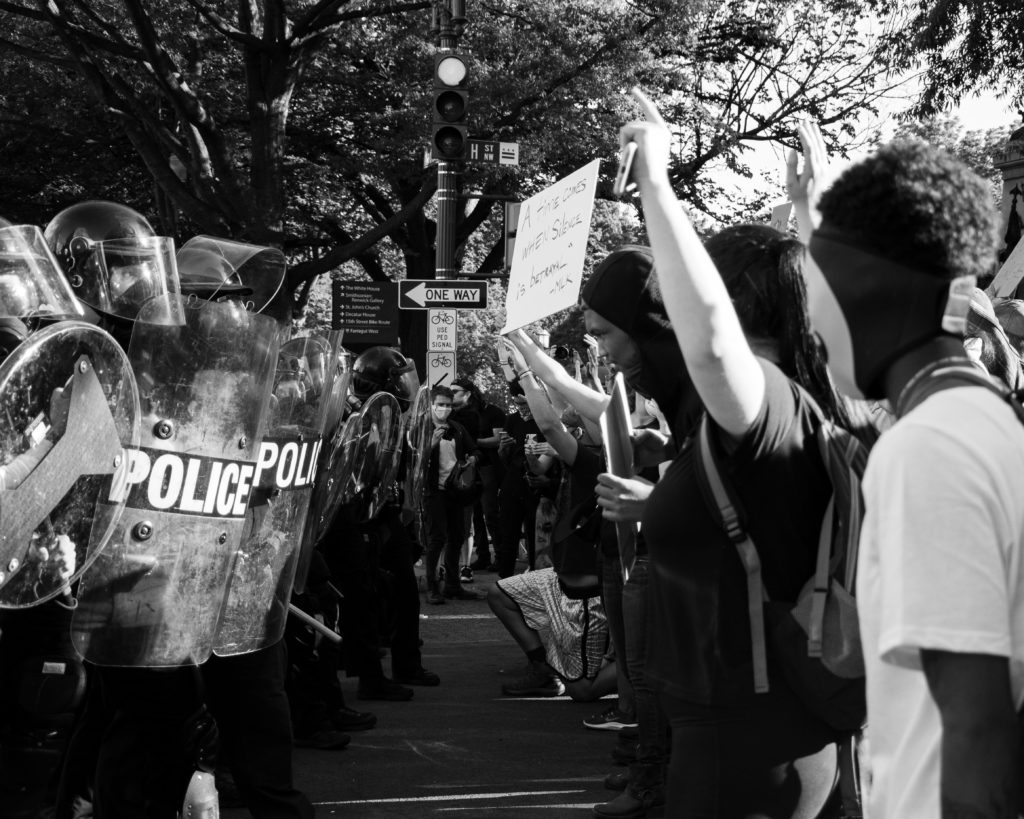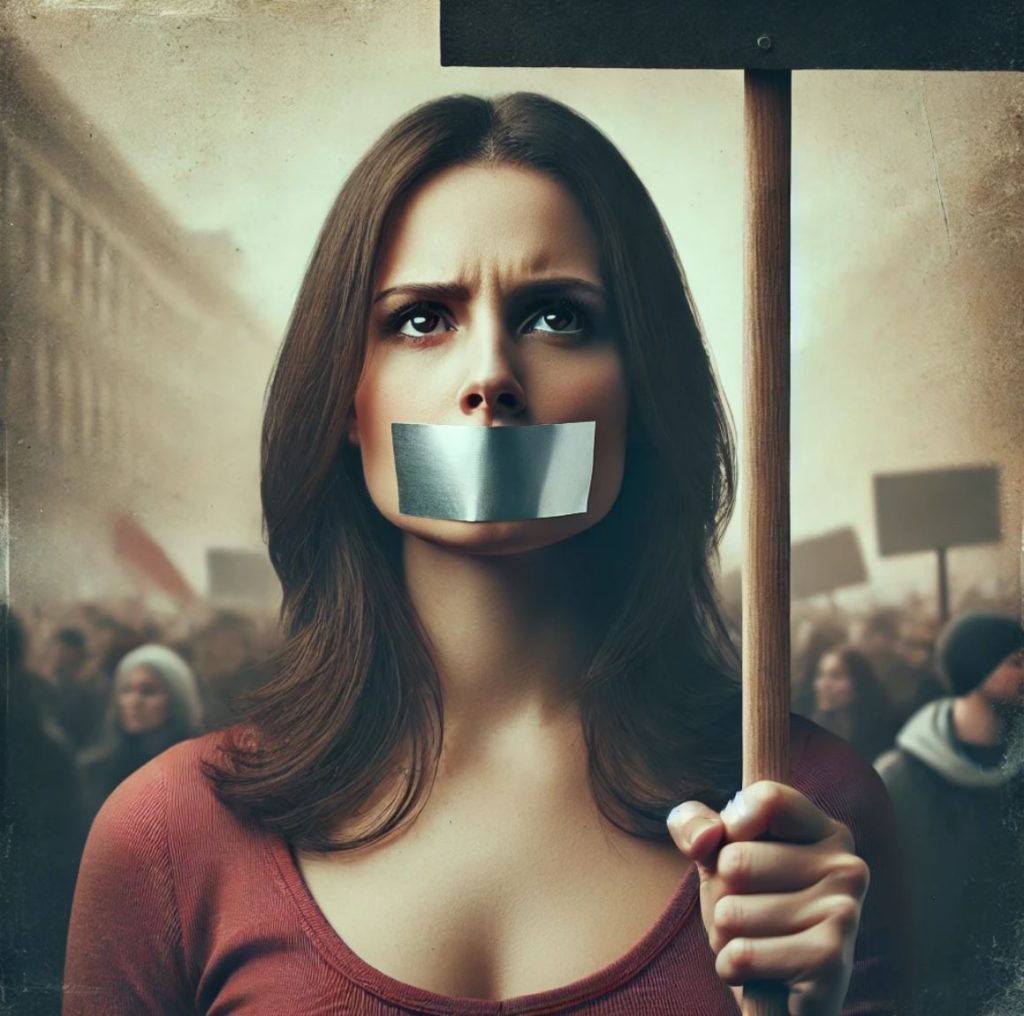Protests and Marches Defense Attorneys in Michigan
When there are demonstrations or protests in response to police brutality or political controversies, there is a need to protect people’s civil rights.

A criminal charge issued to someone lawfully protesting or marching is unconstitutional.
Sometimes, an overly restrictive government response to a lawful demonstration or protest occurs. Criminal charges are sometimes issued wrongfully to people acting lawfully and peacefully. In times of high stress and civil unrest, authorities can overreact and go too far. Because prosecutors and judges might seek to make an example of those accused of political offenses, working with a top protests and marches defense attorney would be in your best interest.
What rights do protesters and demonstrators have? How can a Defense Attorney help?
The primary foundation in America supporting the right to demonstrate or protest comes from the 1st Amendment to the United States Constitution. Of all the rights laid out in the Amendments, the Founders believed that the right of free speech was the most important. Michigan’s Constitution, enacted in 1963, contains many of the same rights.
The right in the United States to free speech and march, demonstrate, or protest is precious and is a model for the entire world. People have an absolute right to demonstrate, protest, and march as long as they do not impede the public, damage property, cause injury to people, or refuse reasonable and lawful commands from the police. And counter-protesters have the same rights as protesters. Protests and marches defense attorneys can help you understand if the First Amendment protects your conduct.

Defense Attorneys Who Can Help When Your Rights Are Violated During Protests and Marches or When Police Cross the Line
Just as protesters have the right to demonstrate lawfully and peaceably, police have the right to perform law enforcement functions without unlawful interference. Neither protesters nor law enforcement officers have a right to violate the law. There are circumstances when protesters act unlawfully. For example, looting, property destruction, and arson are illegal forms of protest. There are also instances when police act unlawfully. For example, police brutality, false claims of criminal activity, and civil rights violations are unlawful and should be penalized. If a person is charged with a crime or falsely accused, they need an experienced, effective defense lawyer to protect and defend them.
Charges Issued to People Taking Part in Protests, Marches and Demonstrations
Both state statutes and local city and township ordinances provide specific limits on public activity. People have the right to speak their minds but may not harm others or property and may not prevent access to public buildings or services. Harming people or the property of others is not a protected activity. As famous Supreme Court Justice Oliver Wendell Holmes stated, “Your right of freedom of expression ends where my nose begins.”
You can do almost anything you want if you don’t harm or endanger other people or property or break any laws. You may not do some things while expressing your opinions or protesting injustices. Some activities violate state law, and some are violations of local ordinances. Some of the more common violations are as follows:
- Looting – Breaking into a structure (store, factory, business) and stealing someone else’s property;
- Inciting a riot (deliberately attempting to incite other people into causing harm or damage);
- Damaging public or private property or defacing it (burning, smashing, or spraying graffiti);
- Arson (setting fire to real or personal property);
- Assaulting a police officer;
- Refusing to obey a lawful order from a police officer;
- Resisting a lawful arrest;
- Remaining in public when a lawful curfew order is in place;
- Obstructing public ways (blocking streets or marching in the streets) without a permit;
- Interfering with police, EMS, or firefighters in the performance of their duty;
- Entering or remaining in restricted areas.
Protests and Marches Potential Penalties
Minor offenses such as spraying graffiti, disorderly conduct, and curfew violations are misdemeanors and can result in misdemeanors or simple civil infraction tickets. Local ordinance misdemeanors usually carry a penalty of up to 90 days in jail, a $500.00 fine, probation, and restitution for damages caused. A civil infraction can result in a fine.
The more serious actions, such as looting, arson, and assaulting a police officer, carry the possibility of heavy prison terms. A county prosecutor or the state attorney general prosecutes felony offenses. For example, looting, which is the breaking and entering of a building to commit larceny or property damage inside, is a 10-year felony.
Arson is another serious charge. If someone commits arson and burns property of significant value, such as a vehicle, that person will face a 5-year felony and a $10,000.00 fine or three (3) times the value of the burned property, whichever is greater. If the property is worth more than $20,000.00, the penalty is 10 years in prison and a $20,000.00 fine or three (3) times the property’s value, whichever is greater.

Good Defense Attorneys Can Expose Police Officers Who Violate the Law During Protests and Marches
There are situations where rogue and out-of-control police officers assault protesters or otherwise violate their rights. An officer who would commit a criminal act in the performance of their duties would likely be the type of person who would falsify charges against their victim to justify their actions. For example, an officer who is unjustly violent when making an arrest may try to justify the physical abuse by falsifying a charge of Resisting or Obstructing a Police Officer. Unjust criminal charges should be publicly exposed, and officers who cross the line should face consequences. Many of these protests and marches-related charges are defendable and can won in court.
People Make Mistakes, and Jail is Not the Answer for Someone Engaging in Protests or Marches
If someone is accused and the offense conduct is evident in a video, defending the case will be complicated but not a lost cause. Even in cases where the evidence is irrefutable, there is always some defense that can be raised by a smart and highly experienced criminal defense attorney. Even if the case cannot be dismissed and thrown out of court, a top-rated defense expert can almost always do something to reduce the penalty. A great criminal defense lawyer in Michigan will know how to convince a judge to focus on rehabilitation instead of punishment. Good people sometimes act impulsively or experience a momentary lapse of judgment. Everyone deserves a lawyer who genuinely cares and will do whatever is necessary to help their client avoid an overly harsh sentence.

Protests and Marches Defense Attorney – We Can Help You!
The Defense Team at LEWIS & DICKSTEIN, P.L.L.C. has always prioritized our client’s civil rights. We have decades of experience successfully defending clients’ rights and fending off improper and overreaching allegations. Suppose you are under investigation or charged with a felony or misdemeanor related to participating in a march, demonstration, or protest. In that case, our experienced defense lawyers can provide you with a free consultation and confidential case evaluation. We will take the time to meet you, hear your story, answer your questions, and develop a strategy to help you. When there is no room for errors and false promises, you will want to work with the experienced defense lawyers at LEWIS & DICKSTEIN, P.L.L.C.
Call us today at (248) 263-6800 for a free consultation or complete an online Request for Assistance Form. We will contact you promptly and find a way to help you.









